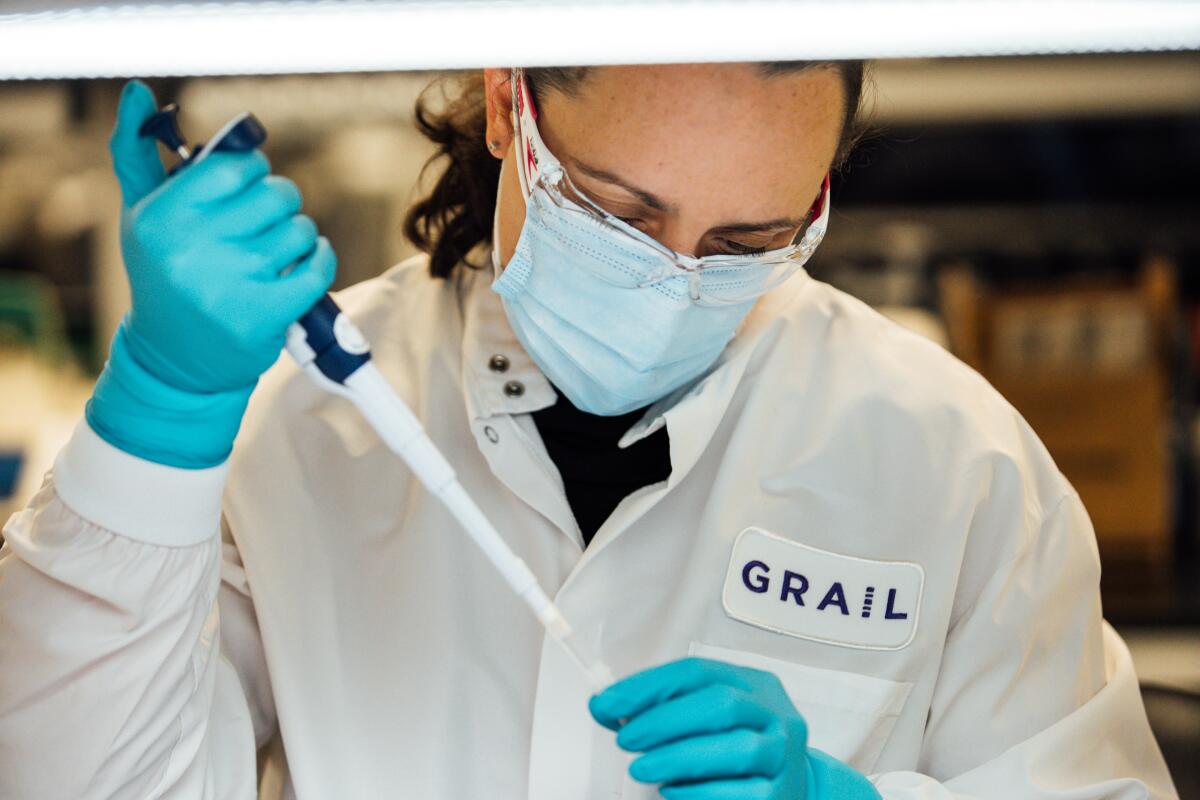Software glitch leads to 400 Grail patients getting bogus letters saying they might have cancer

- Share via
Cancer screening outfit Grail said Friday that a software glitch at a third-party telemedicine vendor led to erroneous letters being sent to about 400 people warning that they may have developed cancer.
Grail is owned by San Diego’s Illumina, the leader in DNA sequencing equipment. But Grail operates independently under orders from European anti-monopoly regulators, who have called for divestiture. So have U.S. regulators. The company is appealing in courts on both continents.
Illumina declined to comment on the news, which was first reported by the Financial Times. In a statement to the San Diego Union-Tribune, Grail said a software configuration issue at PWNHealth led to bogus form letters going out from May 10 until May 18.
The technology that caused the problem has been disabled, according to the company. When it learned about the letters May 19, Grail began contacting people who received them. The company believes it has reached each person via phone, email or letter.
Grail said the notifications were in no way related to incorrect test results or the accuracy of its tests. More than half the people who got the letters had not yet had their blood drawn to be tested, according to the Menlo Park, Calif., company.
“As a patient-focused company, Grail takes seriously our commitment to ensure reliable and accurate Galleri test results and the highest quality experience for our patients,” the company said in an email.
Grail Galleri is an early detection test that can screen for up to 50 types of cancer from a single blood sample. It’s the only such test available.
Galleri samples are processed on Illumina’s gene-sequencing equipment, which is what raised red flags for anti-monopoly regulators. They cost $949 and are available via prescription.
About 85,000 tests have been performed since they first became available two years ago. A handful of insurance companies are covering the costs, though the Financial Times reported some are reconsidering participation because of the erroneous letters.
Grail contends the letters have not affected insurance reimbursement.
PWNHealth, headquartered in New York, is an independent telemedicine company that reviews Galleri test requests, prescribes them and delivers results to patients.
Galleri has been authorized for use in federally certified clinical laboratories that operate under laws that regulate human diagnostic testing. It has not completed human clinical trials, however. A 140,000-patient study in the United Kingdom is underway and recently reached its halfway point, according to the company. The trial is being run by academic researchers in partnership with England’s National Health Service.
Grail said none of the study participants received the PWNHealth letters.
More to Read
Inside the business of entertainment
The Wide Shot brings you news, analysis and insights on everything from streaming wars to production — and what it all means for the future.
You may occasionally receive promotional content from the Los Angeles Times.











